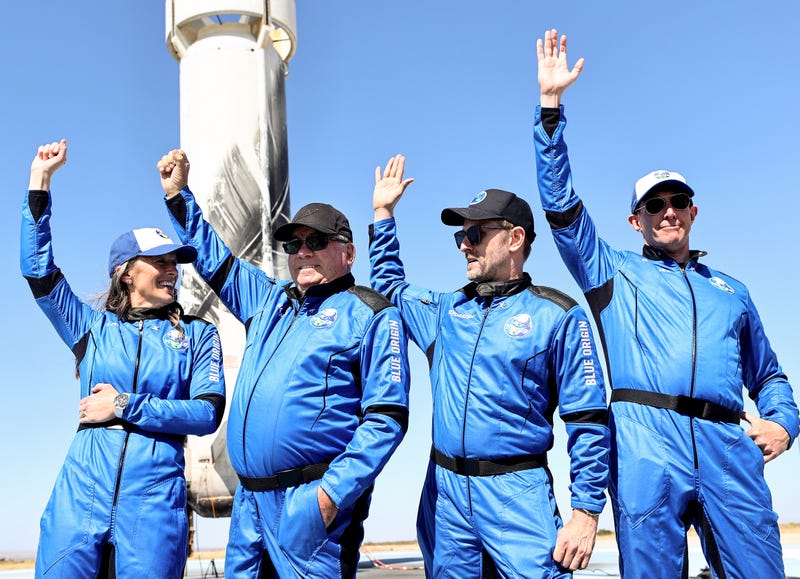
PHILADELPHIA (KYW Newsradio) — For decades, NASA has been studying how astronauts survive and behave in space. Now that everyday citizens are tagging along for joyrides, researchers are keeping an even closer watch.
Most recently, actor William Shatner jetted off for a brief ride to the fringes of the final frontier. At 90 years old, he is the oldest person to travel to space.
A 90-year old overweight celebrity is not exactly who you’d picture as an astronaut, but he joins the ranks of fellow novice space voyagers — a phenomenon the University of Pennsylvania’s Dr. Mathias Basner is studying.
Basner, a professor of psychiatry at the Perelman School of Medicine and a member of the NASA group Translational Research Institute of Space Health (TRISH), is looking at how regular people deal with the stresses of space travel.

“There’s only really a handful of astronauts that we have information on, on any given study or outcome,” he said. “So investigating commercial space flyers is a great opportunity to get a lot of data in a lot of people in a very short period of time.”
His focus is on cognitive performance.
“We developed a cognitive test battery specifically for NASA and astronauts that investigates performance in a number of different cognitive domains,” Basner explained. “We have a memory test, sensory-motor test. We look at risk-taking behavior. We look at emotion recognition capability.
“The idea is to have a battery that’s very broad yet brief.”
How people handle the stress of being trapped in a space capsule can be helpful information on Earth, he said — similar to the anxieties of being stuck in an apartment during a pandemic lockdown.

